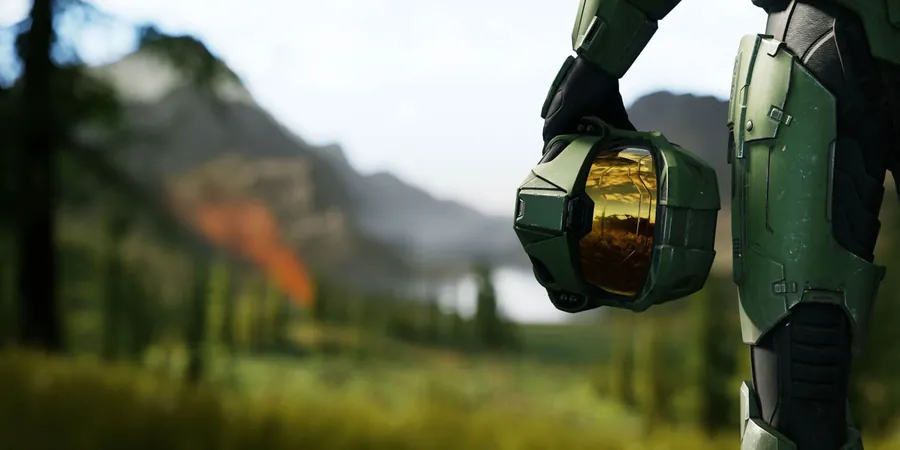
Is Halo's Arrival on PS5 the Beginning of the End for Xbox?
2025-01-13
Author: Ming
Introduction
In a gaming world where console exclusives were once sacred, the thought of Halo, an iconic Xbox franchise, appearing on rival systems like the PS5 and Nintendo Switch seems unfathomable. It’s reminiscent of a gamer’s nightmare: picking up a DualSense controller to play a title you once thought would be forever trapped in the Xbox ecosystem.
Personal Experience with Console Wars
Growing up in a divided household with a PS2 while my brothers championed their Xbox and Nintendo GameCube, I’ve experienced firsthand the intense 'console wars.' The lines were drawn early on, with preferences shaping arguments: one sibling fought for the brilliance of Super Mario Sunshine, while another argued the merits of Halo 2. Meanwhile, I found escape in the enchanting worlds of Final Fantasy, carving out my space in the console battleground.
The Fluidity of Console Exclusivity
Over the years, the gaming landscape has dramatically evolved. Once seen as vital, exclusivity has blurred as beloved titles have been ported or remastered for various platforms. The high costs and extensive development times associated with modern gaming are pushing companies to expand their markets beyond single consoles to avoid financial pitfalls. PlayStation has led this charge, releasing PC versions of major titles like God of War and Horizon Zero Dawn after gaining strong communities on their consoles. For Sony, expanding to PC was always a bonus rather than a necessity.
Meanwhile, Microsoft has taken a fundamentally different approach. With initiatives like Xbox Game Pass and Xbox Play Anywhere, it has integrated its games across Xbox and PC platforms. This strategy, initially promising, has faltered in execution, leaving gamers to question the future of Xbox as a dedicated console. The impending arrival of titles like Halo, Gears of War, and Microsoft Flight Simulator on competing platforms signifies a shift in Microsoft's philosophy, which may denote a desperate attempt to salvage ground in a competitive market.
What Lies Ahead for Xbox?
Recent reports by gaming insiders suggest that the Halo franchise may jump to PlayStation 5 and Nintendo Switch 2 later this year, likely through the Master Chief Collection, making the definitive Halo experience available to a larger audience. This could mean reliving classic titles that helped define a generation of gaming, but it also highlights Microsoft’s struggle to retain exclusive content that once defined their brand.
As other notable projects like Hi-Fi Rush and Pentiment have been announced for PlayStation, it appears Xbox may be hoarding its original IPs, afraid of losing their value in a rapidly evolving market. If major franchises make this leap across console boundaries, the very justification for Xbox as a standalone console diminishes. Ultimately, the brand would transition into a service-oriented model, akin to Sega's shift following the discontinuation of the Dreamcast.
This transformation stems not only from the competitive challenges posed over two console generations but also a stagnating Game Pass model, which is losing more revenue than it generates. As porting becomes a crucial strategy for financial viability, Xbox risks being seen not as a hardware company but a publisher and service provider catering to a wider audience.
Given the lackluster reception of titles like Starfield and other challenges, the winds of change for Xbox may be inevitable. It stands at a crossroads where it could abandon the hardware business entirely, transforming into a third-party publisher similar to Sega, which could lead to new successes. As we look to the future, gamers are left wondering: will Xbox evolve to thrive in this new ecosystem, or is this the start of the end for their dedicated consoles?

 Brasil (PT)
Brasil (PT)
 Canada (EN)
Canada (EN)
 Chile (ES)
Chile (ES)
 Česko (CS)
Česko (CS)
 대한민국 (KO)
대한민국 (KO)
 España (ES)
España (ES)
 France (FR)
France (FR)
 Hong Kong (EN)
Hong Kong (EN)
 Italia (IT)
Italia (IT)
 日本 (JA)
日本 (JA)
 Magyarország (HU)
Magyarország (HU)
 Norge (NO)
Norge (NO)
 Polska (PL)
Polska (PL)
 Schweiz (DE)
Schweiz (DE)
 Singapore (EN)
Singapore (EN)
 Sverige (SV)
Sverige (SV)
 Suomi (FI)
Suomi (FI)
 Türkiye (TR)
Türkiye (TR)
 الإمارات العربية المتحدة (AR)
الإمارات العربية المتحدة (AR)